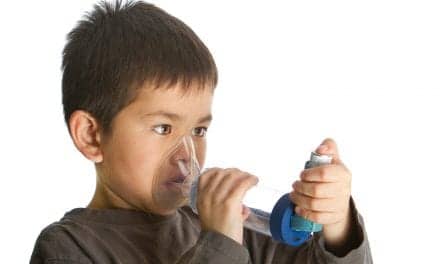Children who grow up on farms have a boost in gut microbiome maturation, which could prevent asthma, according to a study published in Nature Medicine.
The researchers analyzed fecal samples from more than 700 infants partly growing up on traditional farms between the age of 2 and 12 months who took part in PASTURE – a European birth cohort, which runs for almost 20 years now with funding from the European Commission.
“We found that a comparatively large part of the protective farm effect on childhood asthma was mediated by the maturation of the gut microbiome in the first year of life” states Martin Depner, biostatistician at Helmholtz Zentrum München. “This suggests that farm children are in contact with environmental factors possibly environmental microbiota that interact with the gut microbiome and lead to this protective effect.”
The researchers anticipated effects of nutrition on the gut microbiome maturation but were surprised to find strong effects of farm-related exposures such as stays in animal sheds. This emphasizes the importance of the environment for the protective effect. In addition, vaginal delivery and breastfeeding fostered a protective microbiome in the first two months of life.
Furthermore, the researchers discovered an inverse association of asthma with measured level of fecal butyrate. Butyrate is a short chain fatty acid which is known to have an asthma protective effect in mice. The researchers concluded that gut bacteria such as Roseburia and Coprococcus with the potential of producing short chain fatty acids may contribute to asthma protection in humans as well. Children with a matured gut microbiome showed a higher amount of these bacteria (Roseburia and Coprococcus) compared to other children.
“Our study provides further evidence that the gut may have an influence on the health of the lung. A mature gut microbiome with a high level of short chain fatty acids had a protective effect on the respiratory health of the children in this study. This suggests the idea of a relevant gut-lung axis in humans”, says Markus Ege, professor for clinical-respiratory epidemiology at the Dr. von Hauner Children’s Hospital. “This also means, however, that an immature gut microbiome may contribute to the development of diseases. This emphasizes the need for prevention strategies in the first year of life, when the gut microbiome is highly plastic and amenable to modification.”
The researchers demonstrated that the asthma protective effect is not dependent on one single bacteria only, but on the maturation of the entire gut microbiome. This finding questions the approach of using single bacteria as probiotics for the prevention of asthma. Probiotics should rather be tested with respect to their sustained effect on the compositional structure of the gut microbiome and its maturation early in life.










